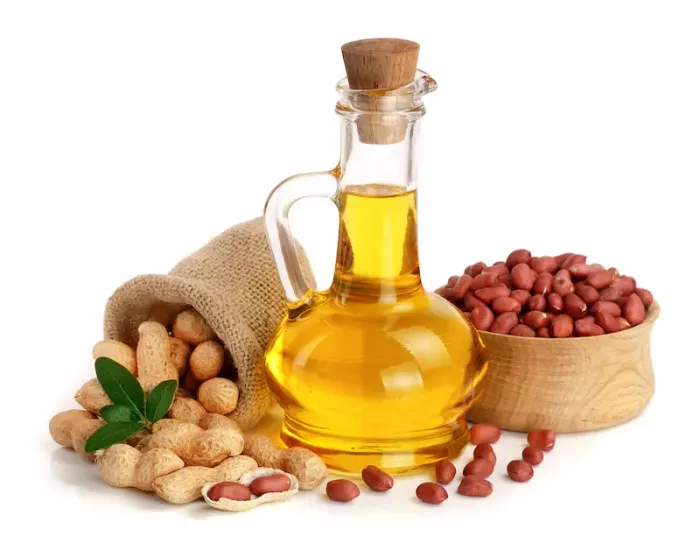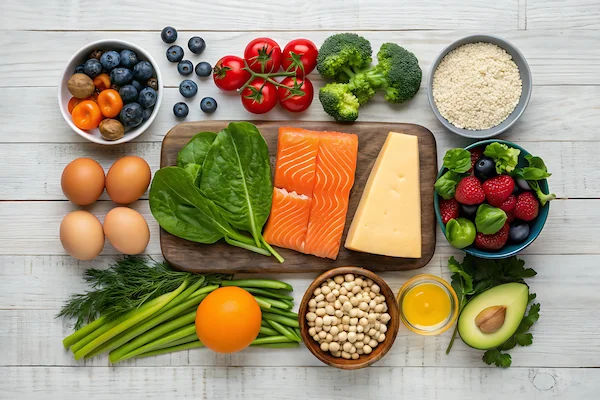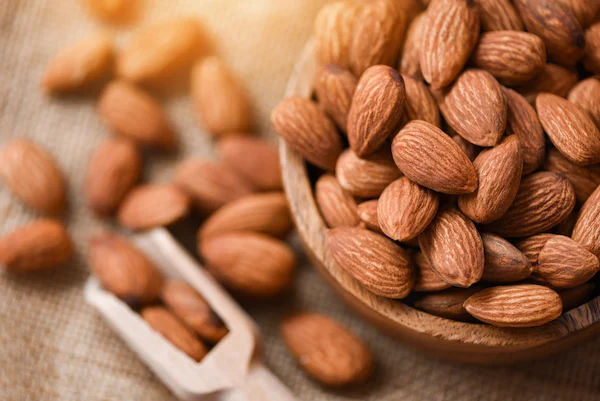Groundnut Oil in Ayurveda: Uses, Benefits, and Side Effects
Discover groundnut oil benefits, Ayurvedic uses, and side effects. Learn how peanut oil fits a heart-healthy diet, who should avoid it, and safe cooking tips.

Written by Dr. Siri Nallapu
Reviewed by Dr. Shaik Abdul Kalam MD (Physician)
Last updated on 13th Jan, 2026

Introduction
Choosing the right cooking oil influences flavour, nutrition, and overall well-being. Groundnut oil—often called peanut oil—remains a staple in many households and is frequently discussed in Ayurveda-inspired lifestyles. While it has long been valued for its neutral taste and versatility, many people still wonder about its genuine advantages, its place in modern nutrition, and how it compares to other commonly used oils. Understanding its strengths, limitations, and safe usage can help you decide how groundnut oil fits into your everyday cooking. This guide explains its benefits, traditional context, possible risks, and how to use it mindfully to support a balanced, heart-conscious routine.Consult a Top Ayurveda Doctor for Personalised Advice
What Is Groundnut Oil (Peanut Oil)?
Groundnut oil comes from pressing peanuts and is available in different forms depending on how it is processed. Each type has its own flavour profile and preferred cooking use.
- Refined peanut oil
Neutral flavour
Pale colour
High smoke point
uitable for high-heat cooking such as stir-frying and deep-frying
- Cold-pressed or unrefined peanut oil
Stronger aroma and richer peanut taste
Retains more natural compounds
Better suited to lower-heat cooking, finishing dishes, or adding flavour to dressings
Like other plant oils, groundnut oil is predominantly unsaturated fat, containing a blend of monounsaturated and polyunsaturated fats, as well as naturally occurring vitamin E. It contains minimal trans fats unless partially hydrogenated—an ingredient you should avoid by checking labels carefully.
Groundnut Oil Benefits: What Science Supports
Peanut oil can contribute to a healthy eating pattern when used appropriately. Key evidence-based advantages include:
Heart-Healthier Fat Profile
- Rich in unsaturated fats that help support cardiovascular health
- Assists in lowering LDL (“bad”) cholesterol when used to replace saturated fats
- Complements heart-conscious cooking patterns when combined with a varied, plant-forward diet
Natural Source of Vitamin E
- Contains vitamin E, an antioxidant that protects cells from oxidative stress
- Provides nourishment without requiring large quantities
- Contributes to overall wellness when part of a diverse diet rather than supplementation alone
Good for High-Heat Cooking (Refined Peanut Oil)
Let us see why groundnut oil in refined form is good for high-heat cooking:
- High smoke point makes it suitable for frying, sautéing, and other high-heat techniques
- Helps reduce the risk of burning oil and forming unpleasant flavours
- Performs consistently across different cuisines due to its neutrality
Neutral Taste and Culinary Versatility
- Works well in dishes that require a light, unobtrusive flavour
- Cold-pressed versions offer depth and nuttiness for those who enjoy richer notes
- Can support a wide variety of recipes, from stir-fries to baked dishes
Helpful in Plant-Forward Diets
- Supports the transition from animal fats to plant-based alternatives
- Adds flavour and satiety while helping reduce saturated fat intake
- Pairs seamlessly with vegetables, legumes, pulses, and whole grains
Groundnut Oil in Ayurveda: Traditional Uses and a Modern View
Ayurveda highlights the importance of choosing foods based on constitution (dosha), digestion (agni), and seasonal needs. While sesame oil, coconut oil, and ghee appear more prominently in classical texts, peanut oil remains widely used across regions and fits comfortably into many home-cooked, Ayurveda-inspired meals when chosen mindfully.
Everyday Cooking
- Neutral flavour suits a variety of dishes
- Works well for tempering, sautéing, and light frying
- Can be adjusted according to personal and seasonal preferences regarding warming and cooling foods
Self-Care Practices
- Sesame oil remains more traditional for abhyanga
- Some individuals use plant oils like peanut oil for massage, but this should be avoided if any peanut sensitivity exists
- Always test oils on a small patch of skin if using them topically
Individualisation
- Ayurveda encourages personalised choices tailored to digestion and constitution
- Align your oil selection with dietary habits, health needs, and clinician guidance
Possible Side Effects and Risks
While groundnut oil offers clear advantages, mindful use is important. Possible side effects & risks include:
Peanut Allergy
- The most significant concern
- Highly refined peanut oil may be tolerated by some, but cold-pressed peanut oil retains proteins and can trigger reactions
- Those with peanut allergies should only use peanut oil if specifically cleared by an allergist
Calorie Density and Weight Gain
- All oils are concentrated sources of calories
- Excessive use can contribute to weight gain if portions are not controlled
- Best used in modest amounts and as a replacement for saturated fats, not an addition
Overall Fat Balance
- Provides monounsaturated and polyunsaturated fats
- Should be part of a varied pattern that includes other healthy fat sources
- A balanced diet remains more important than relying on a single oil
Overheating and Smoke Point
- Overheating any oil can create undesirable flavours and compounds
- Refined peanut oil is appropriate for high heat; cold-pressed oil should remain at low to medium heat
- Discard oil that smells burnt or rancid
Skin Reactions
- Sensitive or allergy-prone individuals may react to the topical use
- Patch-test if using on the skin
- Avoid entirely if allergic to peanuts
How to Choose and Use Peanut Oil Safely
Tips to choose & use safely:
Pick the Right Type for the Job
- High-heat cooking: Choose refined peanut oil
- Dressings and low heat: Use cold-pressed oil for aroma and taste
Read Labels - Avoid partially hydrogenated oils
- Choose reputable brands with clear processing details
Store Properly
- Keep in a cool, dark place away from heat sources
- Ensure the lid is tightly sealed
- Use before the best-by date to maintain freshness
Cook Smart
- Warm oil gradually to avoid overheating
- Do not reuse deep-frying oil repeatedly
- Strain out food particles if reusing once or twice, and discard if the taste or smell changes
Use in Moderation
- A small amount can go a long way
- Rotate peanut oil with other heart-friendly oils, depending on the recipe and cooking method
Who Should Avoid or Limit Groundnut (Peanut) Oil?
People who should avoid include:
- Individuals with a confirmed or suspected peanut allergy
- Anyone advised to restrict overall fat intake due to medical conditions
- People managing heart disease or high cholesterol should maintain a balanced diet rather than relying on a single type of fat
Peanut Oil vs. Other Common Oils: Quick Guidance
Olive Oil
- Excellent for heart health
- Best for low-to-medium heat or raw use when using extra-virgin varieties
Canola Oil
- Neutral taste
- Suitable for everyday cooking
- Offers a balanced fat profile
Sesame Oil
- Strong flavour, enhancing Asian and Indian dishes
- Toasted sesame oil is best used as a finishing oil
Peanut Oil
- Strong candidate for high-heat cooking
- Neutral, adaptable, and widely used across cuisines
Using a mix of these oils allows variety in flavour, texture, and cooking method while supporting a heart-conscious diet.
Ayurveda-Friendly, Evidence-Based Tips for Daily Life
The Ayurveda-friendly tips include:
- Build meals around vegetables, legumes, whole grains, and lean proteins
- Use small amounts of oil to sauté or enrich meals
- Choose cooking methods such as roasting, stir-frying, and steaming instead of deep-frying
- Use peanut oil as one of several healthy oils in rotation
- Keep allergies and digestion in mind when selecting oils
Conclusion
Groundnut oil can be a reliable and flavour-friendly choice when used thoughtfully. Its versatility, heat stability, and neutral taste allow it to complement a wide variety of meals without overpowering their character. When combined with mindful portion control and a balanced eating pattern, it can contribute positively to daily cooking. The most essential consideration is allergy safety, along with using the right variety of oil for the right method. Integrated sensibly, peanut oil can enhance both taste and overall wellness in a balanced kitchen routine.Consult a Top Ayurveda Doctor for Personalised Advice
Consult a Top Ayurveda Doctor for Personalised Advice

Dr. Pepsy Jose
Panchakarma Practitioner
14 Years • BAMS, MD Ayurveda (Panchakarma)
Bengaluru
AYURRHYTHM HOLISTIC CLINIC AND PANCHAKARMA THERAPY, Bengaluru

Dr. Rik Sadhukhan
Ayurveda Practitioner
8 Years • BAMS
Kolkata
Vedhive Ayurveda, Ballygunge, Kolkata

Dr. Anjan Das
Ayurveda Practitioner
8 Years • Ayurvedacharya ( B.A.M.S )
Dumdum
Vedhive Ayurveda Clinic, Dumdum

Dr. Shiv Prakash Singh
Ayurveda Practitioner
19 Years • BAMS
Kolkata
Vedhive Ayurveda College Street, Kolkata
Consult a Top Ayurveda Doctor for Personalised Advice

Dr. Pepsy Jose
Panchakarma Practitioner
14 Years • BAMS, MD Ayurveda (Panchakarma)
Bengaluru
AYURRHYTHM HOLISTIC CLINIC AND PANCHAKARMA THERAPY, Bengaluru

Dr. Rik Sadhukhan
Ayurveda Practitioner
8 Years • BAMS
Kolkata
Vedhive Ayurveda, Ballygunge, Kolkata

Dr. Anjan Das
Ayurveda Practitioner
8 Years • Ayurvedacharya ( B.A.M.S )
Dumdum
Vedhive Ayurveda Clinic, Dumdum

Dr. Shiv Prakash Singh
Ayurveda Practitioner
19 Years • BAMS
Kolkata
Vedhive Ayurveda College Street, Kolkata
More articles from General Medical Consultation
Frequently Asked Questions
1) Is peanut oil good for heart health?
.Yes, its unsaturated fat profile helps support heart health when used to replace saturated fats. The overall dietary pattern, however, matters more than choosing one oil.
2) Is peanut oil safe if I have a peanut allergy?
It may be tolerated in a highly refined form but can trigger reactions in cold-pressed form. Only use it if cleared by your allergist.
3) Which is better: refined or cold-pressed peanut oil?
Refined oil suits high heat; cold-pressed oil suits flavourful, low-heat dishes. Allergy concerns should be prioritised.
4) Can peanut oil help with weight loss?
No oil directly causes weight loss. Peanut oil can support a healthy plan when used sparingly and integrated into a balanced diet.
5) Can I use groundnut oil for Ayurvedic massage (abhyanga)?
Sesame oil is traditionally preferred. Avoid peanut oil entirely if you have any sensitivity or allergy.




